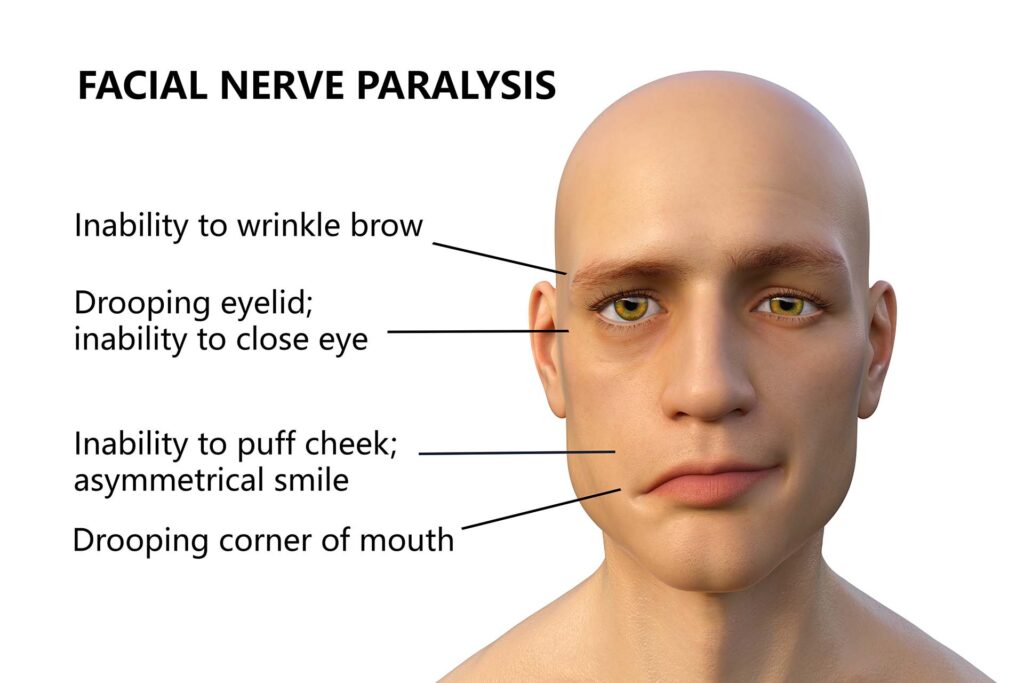Bell’s palsy is an acute, unilateral facial nerve weakness or paralysis of rapid onset (less than 72 hours) and unknown cause.
Herpes simplex virus, varicella zoster virus, and autoimmunity may contribute to the development of Bell’s palsy, but the significance of these factors remains unclear.
Bell’s palsy affects 20–30 people per 100,000 each year. It most common between 15 and 45 years of age.
Complications include eye injury, facial pain, dry mouth, intolerance to loud noises, abnormal facial muscle contraction during voluntary movements, and psychological sequelae.
- A diagnosis of Bell’s palsy can be made when no other medical condition is found to be causing facial weakness or paralysis. Symptoms include:
- Rapid onset (less than 72 hours).
- Facial muscle weakness (almost always unilateral) involving the upper and lower parts of the face. This causes a reduction in movement on the affected side, often with drooping of the eyebrow and corner of the mouth and loss of the nasolabial fold.
- Ear and postauricular region pain on the affected side.
- Difficulty chewing, dry mouth, and changes in taste.
- Incomplete eye closure, dry eye, eye pain, or excessive tearing.
- Numbness or tingling of the cheek and/or mouth.
- Speech articulation problems, drooling.
- Hyperacusis.
- To manage Bell’s palsy:
- The person should be advised to keep the affected eye lubricated by using lubricating eye drops during the day and ointment at night. The eye should be taped closed at bedtime using microporous tape, if the ability to close the eye at night is impaired.
- For people presenting within 72 hours of the onset of symptoms, prescription of prednisolone should be considered.
- Antiviral treatment alone is not recommended, but it may have a small benefit in combination with a corticosteroid; specialist advice is recommended if this is being considered.

Does Physiotherapy help?
From the present literature, it was found that physiotherapy has many benefits in the rehabilitation of patients with Bells Palsy. The results of studies have shown a great improvement in facial function and faster recovery.
In general, facial exercises seem to play an important role in improving the function of facial muscles when combined with other techniques or methods such as Kinesio Tape, Mirror Therapy, PNF and electrotherapy/electroacupuncture
Moreover, the application of acupressure massage for two weeks once per day and for 20 minutes per session seems to significantly reduce the underlying symptoms of palsy and helps to improve the affected side.
Practitioners
Our Physiotherapy Clinic Services
The West Wimbledon Physiotherapy Clinic aims to provide a selection of services to maintain and enhance health and wellbeing. Although primarily a physiotherapy clinic, a range of other treatments are available.



